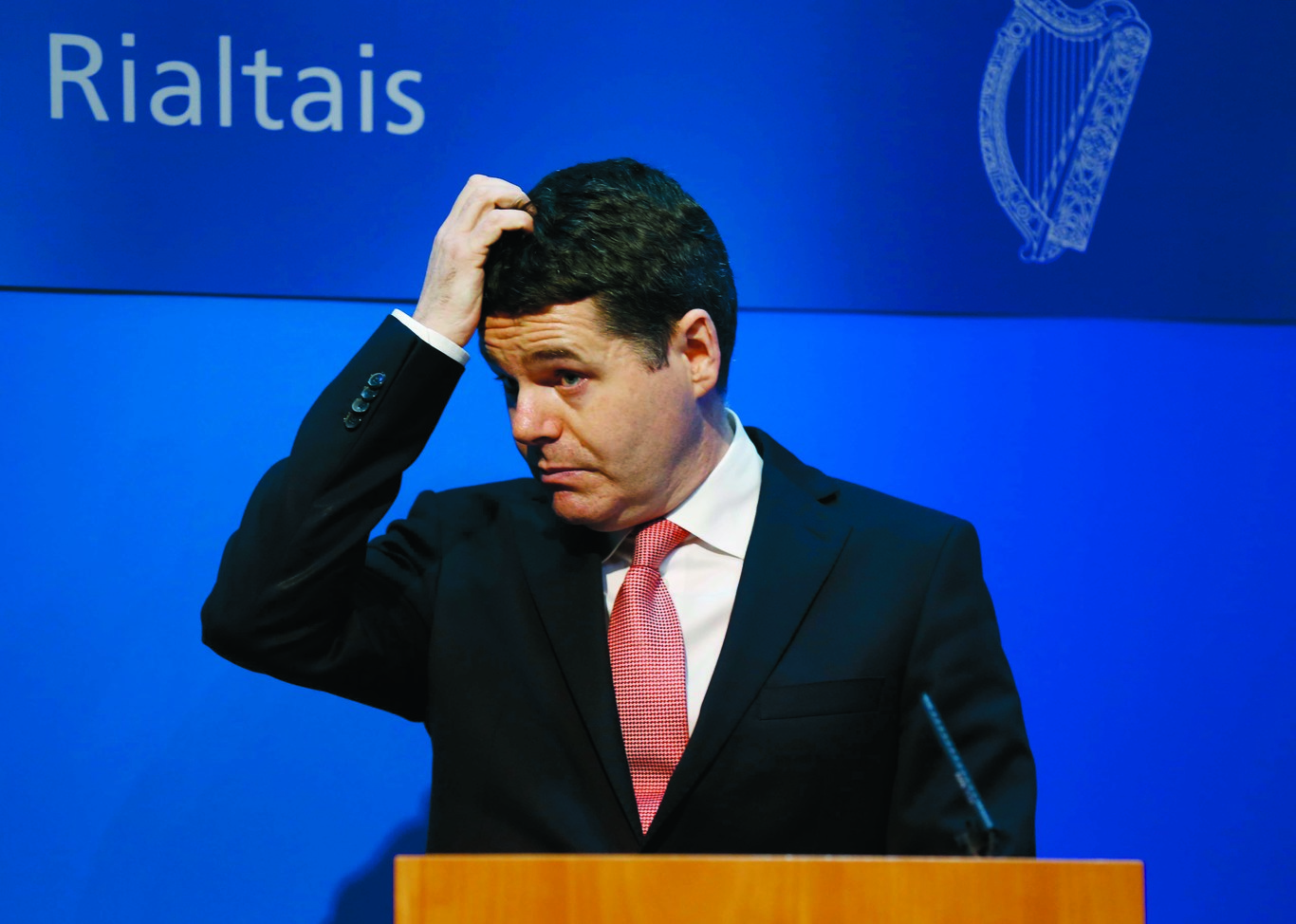Here are some Budget wishes - and what we can expect to actually get
There won’t be any Celtic Tiger-style ‘goodies’ for Ireland in the 2018 edition.
DESPITE ONGOING UNCERTAINTY about the impact of Brexit, international tax reform and US tax changes, there is a lot to be hopeful about in the lead up to Budget 2018.
The global economy has seen strong growth in the second quarter of the year, while Ireland in particular is thriving – growing at a rate of 5.8% year-on-year for the period.
But how do we remain competitive and continue to flourish? And how can Budget 2018 facilitate ongoing growth for indigenous Irish business in a world of uncertainty?
The key challenge for Finance Minister Paschal Donohoe will be in creating a framework for Ireland’s future that is flexible enough to keep pace with global change and clear enough for us as a nation to remain focused.
As Budget 2018 approaches, Donohoe and Taoiseach Leo Varadkar have delivered a number of keynote speeches which give us an insight into their view of Ireland’s future.
They have made it clear that Budget 2018 will not be one of significant tax cuts or unruly expenditure. The mantra is that they will balance the books in 2018, and I expect this to be a key message on Budget day.
However, we also expect Donohoe to set out a roadmap for expenditure and tax changes to come over the next number of budgets.
If the minister is looking to raise revenues from this year’s Budget, one area he could turn to is the preferential VAT rate applying to the tourism sector. It has been estimated that an increase in rate to 10% – up from 9% – would raise circa €150 million.
The average daily rate of a Dublin hotel room is expected to reach €147 in 2018, well up from the 2007 peak of €109, which may give the minister the justification he needs.
Against this, with a weakened sterling and drop in UK tourists, this measure would not be well-received in the industry.
Tax
From an income tax perspective, it would not be surprising to see a change in the 20% rate band from its current level of €33,800 to €34,800.
The minister has reiterated that this government wants to make work pay, and this would be one way of supporting this proposition.
Pension reform is also on the horizon, and it is expected that a five-year plan will be published before the end of the year.
Like several of our international counterparts, it is expected that auto-enrolment for private-sector workers will be a key feature of any such reform.
On the residential property front, we continue to have severe supply constraints.
Opponents of the first time buyer’s scheme introduced in last year’s Budget felt that it undermined the central bank’s authority, but we see it as helping supply in that sector by making it more attractive.
We would like to see the minister extend the scheme to owner-occupiers trading up to new builds to further bolster supply.
In line with the Taoiseach’s stated aspiration of creating a ‘Republic of Opportunity’, further enhancements of Entrepreneur’s Relief – which allows certain entrepreneurs to benefit from a tax rate of 10% on the first €1 million of capital gains made – would be welcome.
Currently the UK equivalent allows for a 10% on the first £10 million of gains. Although it is unlikely that this gap will be significantly narrowed in Budget 2018, this should be addressed in future budgets.
In the context of Brexit, now more than ever, Irish entrepreneurs will need assistance in competing with their British equivalents.
In the same vein, we would welcome a scheme which would allow SMEs to award their employees with share options in a tax-efficient manner.
For cash-strapped startup and scaling companies, in particular, the ability to attract key talent with share-based incentives is vital.
Assurances
Along with the great challenge of Brexit, comes great opportunity – an opportunity for Ireland to attract businesses leaving the UK and welcome new global foreign direct investment and an opportunity to expand our economy.
To maximise these opportunities it will be important that Ireland continues to be seen as an open, transparent and stable place to do business.
There are a number of assurances we can expect to hear reiterated on Budget day. The first is around the government’s commitment to tackle the challenges that Brexit will present. The second is that they will protect our ability to determine tax policy.
While reiterating that Ireland is fully engaged in the OECD/BEPS process, the minister will likely reaffirm that the government will contest any push at an EU level toward corporate tax consolidation or turnover taxes on digital companies.
Also, we can expect assurance that, despite the lack of fiscal space in this year’s Budget, the government recognise the importance of investing in infrastructure and will commit to a programme of capital investment.
Finally, we can expect a consultation process with industry to be announced on the back of the recently released Coffey tax report.
Key areas for consultation to make Ireland’s tax system more aligned with our international counterparts include broadening Ireland’s transfer pricing rules, introducing controlled foreign company (CFC) rules and the taxation of intellectual property income.
Although Budget 2018 is unlikely to be full of the ‘goodies’ we grew to expect in the Celtic Tiger years, it will be one to watch as the Ireland of tomorrow is shaped by the policy decisions of today’s government.
John Murphy is a tax partner at PwC. This article was co-authored by Mairead Harbron, a senior tax manager at PwC.
If you want to share your opinion, advice or story, email opinion@fora.ie.






